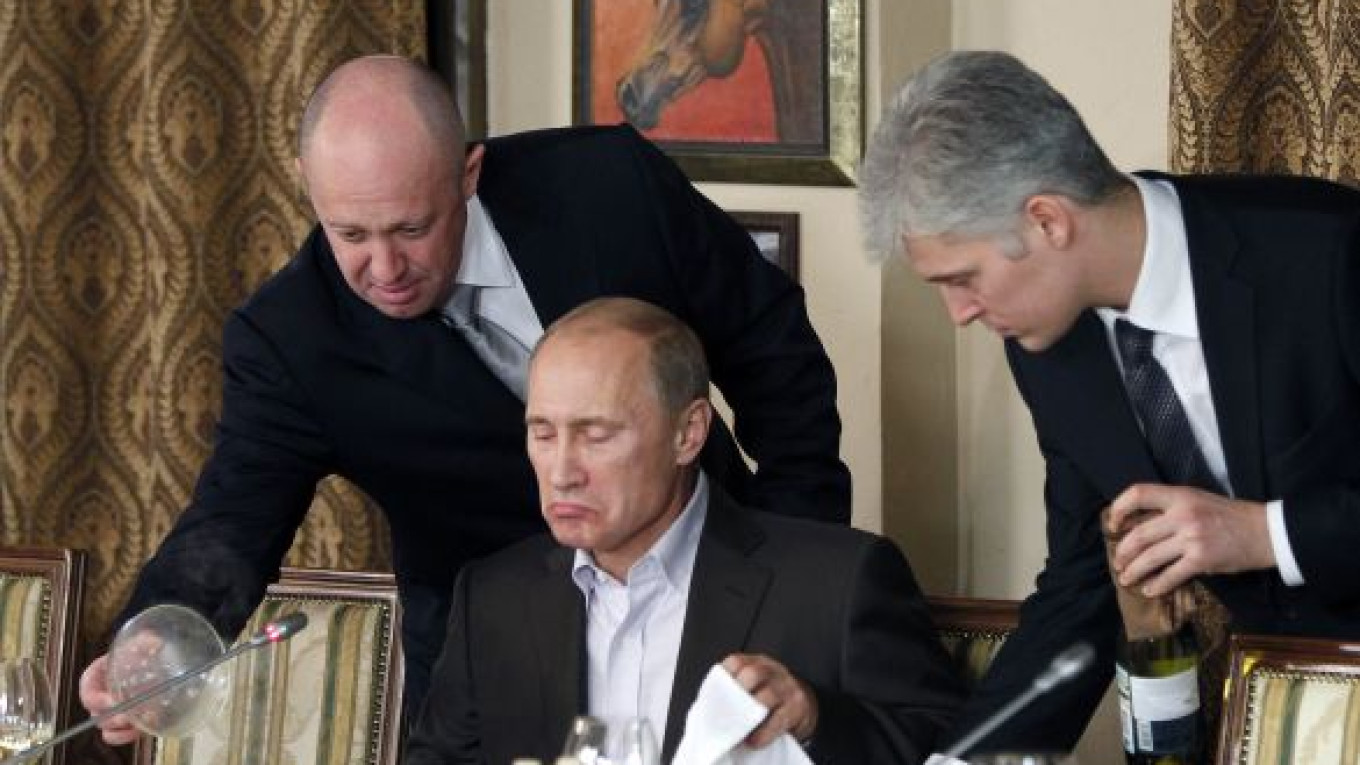POZDNYAKOVO, Moscow Region — Converted from a dairy barn, a restaurant in this elite neighborhood outside Moscow served dinner Friday to Prime Minister Vladimir Putin and an international group of Russia pundits, whose conversation started out with words about civil war and stagnation.
Members of the Valdai Club of international researchers and news editors questioned Putin on his future policies in the likely event that he returns as president next year and asked in an opening speech if political inertia would ever give way to change.
That put Putin on the defensive. He offered a trip back in time by saying his first term as president ended a "civil war" — a reference to attacks allegedly orchestrated by Chechen terrorists — and set the economy on a growth path. But he conceded that some changes were in order.
"We are thinking about ways for citizens to feel a stronger connection to the authorities, exercise stronger influence on the authorities and be able to count on feedback from the authorities on the municipal, regional and federal levels," he told his guests at restaurant Le Cheval Blanc. "We don't believe [the current style of government] has run its course, but we are not going to just mark time."
The restaurant, located at an equestrian club off Rublyovo-Uspenskoye Shosse, is owned by a company linked to Yevgeny Prigozhin, who also organized President Dmitry Medvedev's inaugural dinner and is behind a restaurant located in the Cabinet building. The equestrain club — Novy Vek, or New Century — sits at what used to be the dairy arm of a bankrupt collective farm called Lenin's Ray. It is now home to six horses that Medvedev received as gifts from his counterparts.
As the Valdai Club met — savoring such dishes as escalope of tuna steak with leeks, veal cheeks with green asparagus and morels, rhubarb sorbet and pear soup with caramel — several horse riders continued their exercises next door, circling around inside another former equestrian arena.
Piotr Dutkiewicz, a professor at Canada's Carleton University, insisted on knowing how Putin will upgrade his policies and his government for the second term.
"How may the new President Vladimir Vladimirovich Putin-2 differ from Vladimir Vladimirovich Putin-1? How will that president differ from the president we saw from 2000 to 2008?" he said. "As you know perfectly well, good series have new plots and new actors. And I would like to ask what new actors and what new plots do you see in Russia's future?"
Putin responded that some basic things, such as his "love of the motherland," would never change. But he and his colleagues in the government see new demands from the public in areas like ethnic relations and information technology.
Most of the three-hour meeting that ended after midnight went on behind closed doors. Alexander Rahr, a German expert on Russia, said Putin reconfirmed previous statements that Medvedev would enjoy broad powers as prime minister. Dutkiewicz said Medvedev's Cabinet, according to Putin, would have new faces.
Expanding on potential democratic development, Putin advocated a slow approach, said Angela Stent, a Russia expert at Georgetown University.
"The process of change takes a long time," she quoted Putin as saying. "Eventually, things will change."
Questions about energy trade — such as the role of shale gas, a key competitor to Russia's exports — seemed especially close to his heart, she said.
Putin insisted that Gazprom should retain its monopoly on gas exports, even after Russia joins the World Trade Organization in the next few months, Dutkiewicz said. But Russia agreed to talk with the European Union about the problem, he said.
In international politics, Putin challenged the U.S. goal to pull out of Afghanistan by 2014, Stent said. The complete withdrawal should happen only after the country reaches full stability, said Putin, whose country is a major market and transit route for Afghan drugs.
"There shouldn't be any artificial deadlines," he said, according to Stent.
Putin also called Berlusconi "one of the last Mohicans of European politics" who had brought political stability to Italy.
A Message from The Moscow Times:
Dear readers,
We are facing unprecedented challenges. Russia's Prosecutor General's Office has designated The Moscow Times as an "undesirable" organization, criminalizing our work and putting our staff at risk of prosecution. This follows our earlier unjust labeling as a "foreign agent."
These actions are direct attempts to silence independent journalism in Russia. The authorities claim our work "discredits the decisions of the Russian leadership." We see things differently: we strive to provide accurate, unbiased reporting on Russia.
We, the journalists of The Moscow Times, refuse to be silenced. But to continue our work, we need your help.
Your support, no matter how small, makes a world of difference. If you can, please support us monthly starting from just $2. It's quick to set up, and every contribution makes a significant impact.
By supporting The Moscow Times, you're defending open, independent journalism in the face of repression. Thank you for standing with us.
Remind me later.


